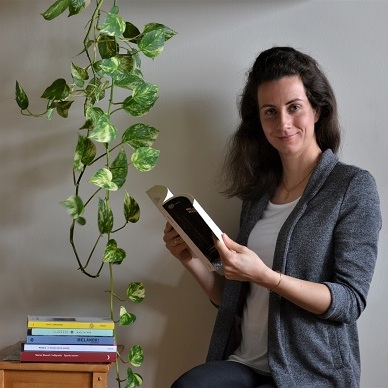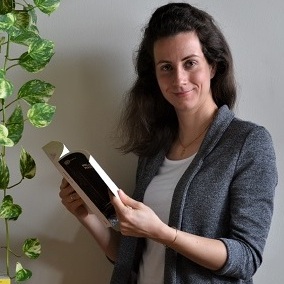
Blog in italiano – tempo di lettura: 3 min
Blog in English – reading time: 3 min
________________
Blog in italiano
Buongiorno a tutti voi,
oggi ascoltiamo la prima parte della conversazione di Cubo e Paolo con Costanza, l’ospite mai visto di questo episodio e del prossimo, insegnante di lingua italiana residente in Canada. La potete sul suo sito “Read and learn italian” (www.readandlearnitalian.com) dal quale potete prenotare anche una lezione on line. Qui anche i suo Profilo Instagram: Readlearnitalian.
Vogliamo scoprire insieme se leggere aiuta ad imparare una lingua! (e non mi riferisco al tipo di letture di Cubo adolescente😱🙃😉 … per inciso per letture “sporche” si intendono i giornaletti tipo Playboy!).
L’obiettivo di Costanza nel suo podcast è insegnare l’italiano attraverso la lettura di libri (classici e contemporanei) e la visione di film e serie tv, infatti come lei afferma, attraverso contenuti culturali ci si avvicina più facilmente alla vera cultura italiana, cioè si viene a contatto con il nostro sistema di valori e di pensiero perché la lingua non è qualcosa di astratto ma veicola il nostro modo di pensare, ragionare, vivere!
Nelle sue lezioni si legge insieme un libro e si fa conversazione attraverso attività interattive. Bello!
Chiediamo allora a Costanza qualche consiglio di lettura per avvicinarsi allo studio dell’italiano.
Sul suo sito, Costanza suggerisce di leggere il libro “In altre parole” di Jhumpa Lahiri una scrittrice statunitense di origini indiane che in questo libro scrive per la prima volta in italiano.
Questo libro parla della passione per l’italiano che la sorprende come un vero colpo di fulmine, (per questo addirittura si trasferisce a Roma!) ma l’autrice non tralascia di sottolineare le difficoltà che si incontrano… ci sembra che sia un libro che fa proprio al caso nostro!
Costanza ha scritto un interessante articolo in cui dà sei suggerimenti per migliorare lo studio dell’italiano, ispirati proprio dal percorso di studio dell’autrice Jhumpa Lahiri.
Cominciamo in questo episodio con il commentare i primi tre:
1 Immergetevi, tuffatevi nella lingua!
All’inizio avrete paura e non lascerete la sponda ma per imparare veramente dovrete attraversare senza il supporto della vostra lingua madre, dovrete immergervi. In altre parole inizia proprio così con questa immagine del lago (una lingua straniera, in questo caso l’italiano) e della difficoltà di attraversarlo, di nuotarci attraverso senza supporto (la nostra lingua madre).
2 Non fate tutto da soli.
La bellezza di imparare una lingua straniera sta nella sua condivisione, nelle relazioni che intrecciamo con persone che parlano quella lingua, nell’esprimersi, nel comunicarla. La lingua non è una collezione di regole grammaticali o una lista di vocaboli da imparare a memoria. Condividete la vostra passione con altri, trovate un insegnante madrelingua. Se no, come dice Jhumpa, è come studiare: “il funzionamento di uno strumento musicale, senza mai suonarlo”.
3 Iniziate a parlare in italiano fin dall’inizio.
Anche se non vi sentite perfetti o a vostro agio o avete paura della vostra pronuncia e di non essere capiti. Soprattutto durante i vostri viaggi in Italia, non esitate a parlare in italiano.
In chiusura raccogliamo anche un paio di consigli di lettura: ovviamente il libro qui sopra citato “In altre parole” tra il saggio e l’autobiografia, adatto anche per un livello principiante (A2) visto che usa un vocabolario e una struttura semplici e poi per un livello intermedio (B1) il bel libro di Niccolò Ammaniti “Io non ho paura” romanzo di formazione che si legge tutto d’un fiato, del quale vi consigliamo anche il film!
Buona settimana a tutti voi e un caloroso grazie a tutti coloro che ci sostengono ed in particolare ai nuovi patrons Dale e Nels!
By Sara🎙🇮🇹
►Ti piace il nostro podcast? Sostienici al costo di un caffè
senza di voi non ci sarebbe il podcast:
https://www.patreon.com/litalianoveropodcast
►Contattaci per idee su nuovi episodi:
https://www.litalianovero.it/wp/contatti/
►Facebook:
https://www.facebook.com/litalianoveropodcast/
►Instagram:
https://www.instagram.com/litalianoveropodcast/
►YouTube
https://bit.ly/2zvrbOK
________________
Blog in Inglese
Hello to all of you,
Today we listen to the first part of Cubo and Paolo’s conversation with Costanza, the never seen guest of this episode and the next one, an Italian language teacher residing in Canada. You can find her through her web site and book an Italian lesson “Read and Learn Italian” (www.readandlearnitalian.com) which we suggest to you. Here also you can find her Instagram profile Readlearnitalian.
We want to find out together if reading helps to learn a language! (and I am not referring to the type of readings of adolescent Cubo … by the way, for “dirty”😱🙃😉 readings we mean Playboy-type magazines!).
Costanza’s goal in her podcast is to teach Italian through reading books (classic and contemporary) and watching movies and TV series, in fact, as she says, through cultural contents one gets closer to true Italian culture; that is, we come into contact with our system of values and thought because language is not just something abstract but also conveys our way of thinking, reasoning, and living!
In her lectures, we read a book together and converse through interactive activities. Beautiful!
So let’s ask Costanza some reading advice how to get closer to the study of Italian.
On her website, Costanza suggests reading the book “In altre parole” (“In Other Words“) by Jhumpa Lahiri, an American writer of Indian origins who writes in Italian for the first time in this book.
This book talks about the passion for Italian that surprises her like love at first sight, (for this reason she even moves to Rome!) But the author does not fail to underline the difficulties encountered … it seems to us that it is a book that is right for us!
Costanza has written an interesting article in which she gives six suggestions for improving the study of Italian, inspired by the study path of the author Jhumpa Lahiri.
Let’s start in this episode with the first three:
1 Immerse yourself, dive into the language!
At first you will be afraid and you will not leave the shore but to truly learn you will have to cross without the support of your mother tongue, you will have to immerse yourself. In other words, it begins with a mental image of a lake (a foreign language, in this case Italian) and the difficulty of crossing it, of swimming across it without support (our mother tongue).
2 Don’t try to do it all by yourself.
The beauty of learning a foreign language lies in its sharing, in the relationships we weave with people who speak that language, in expressing oneself, in communicating it. Language is not a collection of grammar rules or a list of words to be memorized. Share your passion with others, find a native speaker teacher. If not, as Jhumpa says, it is like studying: “the functioning of a musical instrument, without ever playing it”.
3 Start speaking in Italian from the very beginning.
Do that even if you don’t feel perfect or comfortable or are afraid of your pronunciation and not being understood. Especially during your travels in Italy, do not hesitate to speak in Italian.
In closing we also collect a couple of reading tips: obviously the above-mentioned book “In altre parole” being both an essay and an autobiography, also suitable for a beginner level (A2) since it uses a simple vocabulary and structure and then for an intermediate level (B1) the beautiful book by Niccolò Ammaniti Io non ho paura (“I am not afraid”), a coming-of-age novel that can be read in one breath, of which we also recommend the film!
Good week to all of you and a warm thanks to all those who support us and in particular to the new patrons Dale and Nels!
By Kevin (ItalianRocks)
►Did you like the podcast? Please support us at the cost of a coffee
without you there would be no podcast:
https://www.patreon.com/litalianoveropodcast
►Contact us for ideas about new podcasts:
https://www.litalianovero.it/wp/contatti/
►Facebook:
https://www.facebook.com/litalianoveropodcast/
►Instagram:
https://www.instagram.com/litalianoveropodcast/
►YouTube
https://bit.ly/2zvrbOK
 Settembre 9, 2019
Settembre 9, 2019 24 min
24 min Luglio 29, 2019
Luglio 29, 2019 13 min
13 min Luglio 15, 2019
Luglio 15, 2019 24 min
24 min Luglio 1, 2019
Luglio 1, 2019 15 min
15 min Giugno 17, 2019
Giugno 17, 2019 21 min
21 min Maggio 30, 2019
Maggio 30, 2019 29 min
29 min Maggio 9, 2019
Maggio 9, 2019 21 min
21 min Aprile 30, 2019
Aprile 30, 2019 28 min
28 min Aprile 17, 2019
Aprile 17, 2019 15 min
15 min Aprile 10, 2019
Aprile 10, 2019 24 min
24 min Aprile 3, 2019
Aprile 3, 2019 24 min
24 min Gennaio 26, 2020
Gennaio 26, 2020 21 min
21 min Gennaio 12, 2020
Gennaio 12, 2020 20 min
20 min Dicembre 29, 2019
Dicembre 29, 2019 24 min
24 min Dicembre 15, 2019
Dicembre 15, 2019 21 min
21 min Dicembre 1, 2019
Dicembre 1, 2019 12 min
12 min Novembre 17, 2019
Novembre 17, 2019 min
min Novembre 3, 2019
Novembre 3, 2019 20 min
20 min Ottobre 20, 2019
Ottobre 20, 2019 14 min
14 min Ottobre 7, 2019
Ottobre 7, 2019 9 min
9 min Settembre 23, 2019
Settembre 23, 2019 33 min
33 min Gennaio 9, 2024
Gennaio 9, 2024 6 min
6 min Dicembre 2, 2022
Dicembre 2, 2022 31 min
31 min Ottobre 8, 2022
Ottobre 8, 2022 18 min
18 min Dicembre 25, 2021
Dicembre 25, 2021 1 min
1 min Settembre 18, 2021
Settembre 18, 2021 21 min
21 min Agosto 14, 2021
Agosto 14, 2021 17 min
17 min Maggio 4, 2020
Maggio 4, 2020 32 min
32 min Aprile 12, 2020
Aprile 12, 2020 41 min
41 min Agosto 26, 2019
Agosto 26, 2019 18 min
18 min Agosto 12, 2019
Agosto 12, 2019 11 min
11 min Giugno 5, 2019
Giugno 5, 2019 9 min
9 min








Leave a Comment